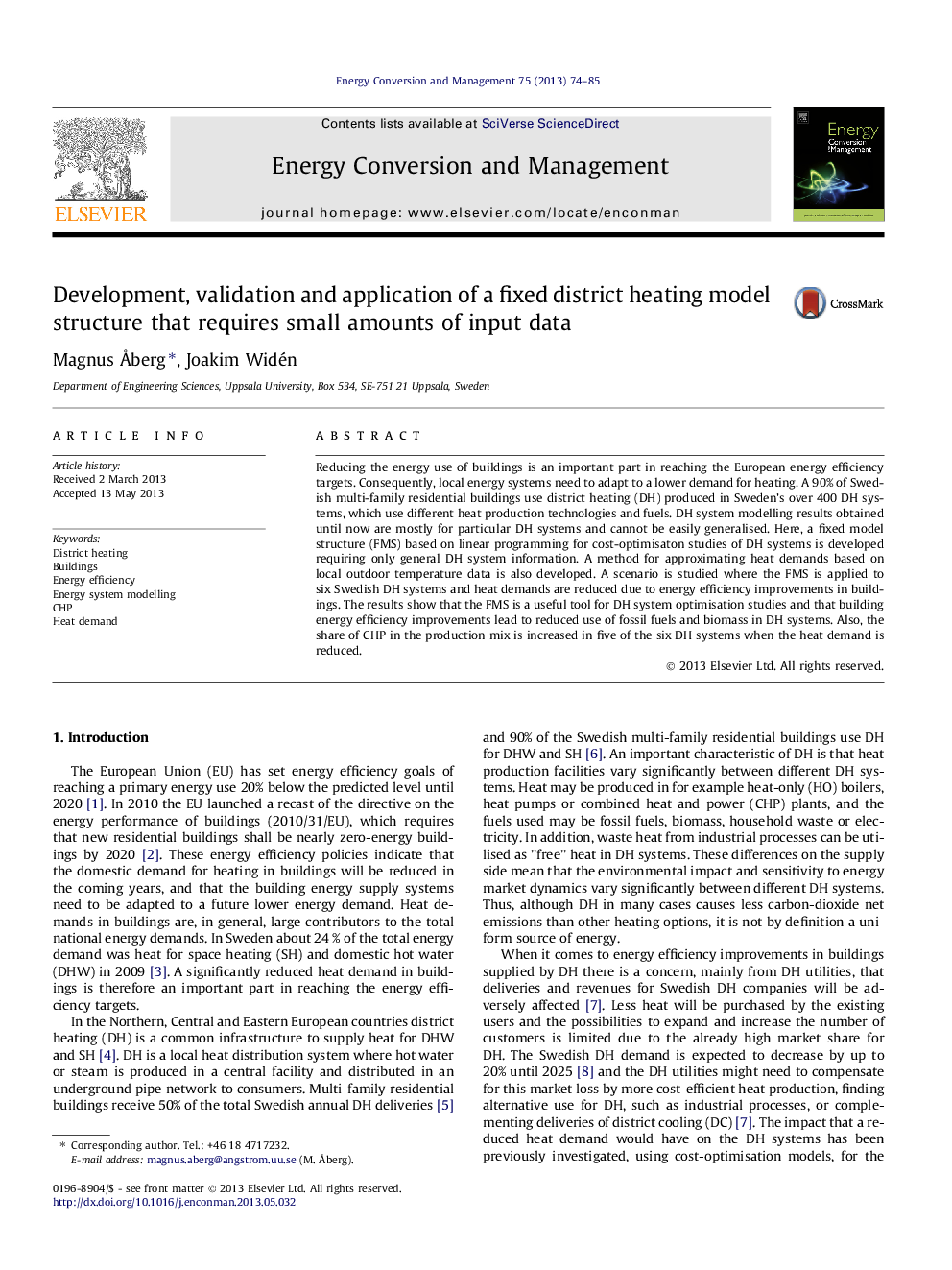| Article ID | Journal | Published Year | Pages | File Type |
|---|---|---|---|---|
| 7166128 | Energy Conversion and Management | 2013 | 12 Pages |
Abstract
Reducing the energy use of buildings is an important part in reaching the European energy efficiency targets. Consequently, local energy systems need to adapt to a lower demand for heating. A 90% of Swedish multi-family residential buildings use district heating (DH) produced in Sweden's over 400 DH systems, which use different heat production technologies and fuels. DH system modelling results obtained until now are mostly for particular DH systems and cannot be easily generalised. Here, a fixed model structure (FMS) based on linear programming for cost-optimisaton studies of DH systems is developed requiring only general DH system information. A method for approximating heat demands based on local outdoor temperature data is also developed. A scenario is studied where the FMS is applied to six Swedish DH systems and heat demands are reduced due to energy efficiency improvements in buildings. The results show that the FMS is a useful tool for DH system optimisation studies and that building energy efficiency improvements lead to reduced use of fossil fuels and biomass in DH systems. Also, the share of CHP in the production mix is increased in five of the six DH systems when the heat demand is reduced.
Related Topics
Physical Sciences and Engineering
Energy
Energy (General)
Authors
Magnus AËberg, Joakim Widén,
